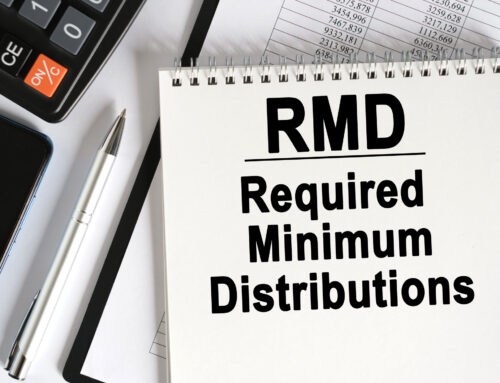
The rule of thumb says you’ll need about 80% of your pre-retirement income in retirement, but everyone is different. Many retirees want to upgrade their lifestyle in retirement or maintain their current lifestyle. In fact, a recent study shows that about one in three retirees actually spent more than they expected they would when they first retired, and one in 10 spent much more than they anticipated. To help avoid this outcome, don’t forget about these potentially big retirement expenses.
Healthcare & Long Term Care
The average 65-year-old couple retiring today will need an estimated $295,000 to cover their healthcare costs[1], and that doesn’t even include long-term care costs. An estimated 70% of today’s 65-year-olds will need long-term care at some point[2] and costs can be staggering: In 2020, the median yearly cost for an in-home health aide was $54,912, and the median yearly cost for a private room in a nursing home was $105,850.[3] Medicare and Medicaid will only cover costs in some circumstances, so retirees must have a plan for covering healthcare and long-term care costs. This can include a life insurance policy with long-term care benefits, an immediate annuity, or other financial planning strategies.
Taxes
Your tax situation can change significantly in retirement, but that doesn’t necessarily mean you’ll pay significantly less. You may lose the ability to claim dependents or a mortgage interest deduction but may still be receiving taxable income from your 401(k), IRA, or other tax-deferred retirement accounts. In fact, between Social Security benefits, retirement account distributions, investment gains, and property sales, there are reasons why your tax burden could actually increase in retirement. Also, consider that tax may be at historic lows right now, and our growing national debt and tax-increasing proposals from the Biden administration could change this. There are ways to help reduce your tax burden in retirement, such as a Roth conversion, real estate strategies, and integrating your tax and investing strategies.
Your Lifestyle
How much of your pre-retirement income do you expect to need in retirement? Before you answer, consider if you plan to maintain your current lifestyle in retirement. Will you stay in your home? Did you know that the average retiree household pays an average of $17,472 per year on housing expenses?[4] Maybe you want to travel or try some new restaurants. Will you want to adopt new hobbies with all of your free time and do they cost money? Retirement income planning is important, especially if you’re worried about making your savings last for the rest of your life. We can help you protect your nest egg from market loss, potentially grow your wealth, and create guaranteed income for life.
We’re here to help you plan for all aspects of retirement: tax minimization, healthcare, and long term care cost planning, Social Security maximization, estate planning, and more. Beyond looking at the numbers, we look at your unique concerns and goals. Sign up for a complimentary financial review to start the conversation with us.
[1] https://www.fidelity.com/viewpoints/personal-finance/plan-for-rising-health-care-costs
[2] https://www.genworth.com/aging-and-you/finances/cost-of-care/cost-of-care-trends-and-insights.html
[3] https://www.visionretirement.com/articles/largestexpensesretirees#
As of March 31, 2021, Mercer Advisorsis now a part of Mercer Global Advisors Inc. Mercer Global Advisors Inc. (“Mercer Advisors”) is registered as an Investment Adviser with the SEC. The firm only transacts business in states where it is properly registered or is excluded or exempted from registration requirements.
Epstein & White Financial, LLC (“Epstein & White Financial”) is an SEC-registered investment adviser; however, such registration does not imply a certain level of skill or training and no inference to the contrary should be made. A copy of Epstein & White Financial’s current written disclosure statement discussing our advisory services and fees is available for review upon request or at www.adviserinfo.sec.gov.
Epstein & White Retirement Income Solutions, LLC (“Epstein & White Retirement”) is a licensed insurance agency with the State of California Department of Insurance (#0K53785). All investment advisory and financial planning services are provided only through Epstein & White Financial.
Please Note: Epstein & White is a tradename. All services provided by Epstein & White investment professionals are provided in their individual capacities as investment adviser representatives of Mercer Global Advisors Inc. (“Mercer Advisors”), an SEC registered investment adviser principally located in Denver, Colorado, with various branch offices throughout the United States doing business under different tradenames, including Epstein & White.
Information contained herein is for informational and illustrative purposes only and general in nature. It should not be considered investment advice or a recommendation to buy or sell any type of securities or insurance products and no investment decision should be made based solely on any information provided herein. We provide this information with the understanding that we are not engaged in rendering legal, accounting, or tax services. We recommend that all investors seek out the services of competent professionals in any of the aforementioned areas.
Investment in securities carries a risk of loss, including loss of principal amount invested. Different types of investments involve varying degrees of risk. It should not be assumed that diversification or asset allocation protects a portfolio from loss or that such will produce profitable results.




